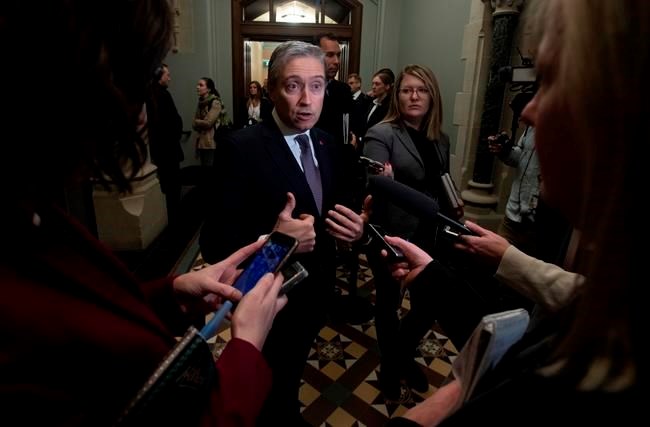OTTAWA — The flight recorders from the Ukrainian jetliner shot down by the Iranian military in January will be arriving in Ukraine in 10 to 14 days, the country's envoy to Canada said Wednesday.
Ambassador Andriy Shevchenko was at the International Civil Aviation Organization meeting in Montreal Wednesday when the voice of Iran's representative, Farhad Parvaresh, offered that long-awaited confirmation.
Getting the black boxes has taken longer that Canada, Ukraine and the three other countries that lost citizens in the shootdown of Ukraine International Airlines Flight 752 would have liked.
Iran's military fired missiles at the airliner, killing all 176 people on board, including 55 Canadians.
Parvaresh wasn't at the meeting but addressed the ICAO council by telephone. Canada's Transport Minister Marc Garneau was also in the room.
"Of course, there was a very visible sign of relief in the room and many members of the council expressed their welcome of this decision," Shevchenko said in an interview.
"By now we have already wasted too much time, and we want to finally start moving forward."
Shevchenko and Foreign Affairs Minister Francois-Philippe Champagne welcomed the promise from Iran to hand over the flight recorders.
Parvaresh pledged that the "black boxes" will be transferred to Ukraine or on to France as necessary, said Champagne.
"We welcome those words but we will judge Iran by obviously their actions," he said.
"We will be following up to make sure this is happening."
Speaking to reporters, Champagne offered no details on when the transfer would happen. Shevchenko was unable to explain the 10- to 14-day time frame, but stressed it was a necessary development, and one that all countries involved agreed was inevitable.
Governments from five countries that lost citizens in the crash have been working together to pressure Iran for a transparent investigation. They are also asking for compensation for the victims, and for whomever was responsible for the missiles to be held responsible. Iran has said they were fired in error.
Iran admitted shortly after the disaster that the black boxes were partially damaged, and that it did not have the technical ability to extract the data they contained.
"We do not have a clear understanding of what are the conditions of the boxes. I guess the final understanding of how we proceed will be after we have them," said Shevchenko.
The boxes will be examined in Ukraine first "and once we understand what kind of expertise we need there will be a final decision on whether we need to proceed to France or not."
Shevchenko said Canada and Ukraine led the way in keeping lines of communication open with Tehran to push for the release of the flight recorders to push for a "thorough and trustworthy investigation."
"If we want to make sure this does not happen again, then we, again, really need to have this very full and comprehensive picture of the event," the envoy said.
"It's a matter of rule of law," he added. "There are clear ICAO regulations from this, and I think it's really to everyone's benefit to make sure that this international framework, these international rules, they are respected and they work."
Champagne noted that families are still waiting for answers, and the black boxes could provide crucial clues into the flight's final minutes.
He said Canada wants its own experts to play a role in analyzing the boxes.
This report by The Canadian Press was first published March 11, 2020.
Mike Blanchfield and Stephanie Levitz, The Canadian Press


